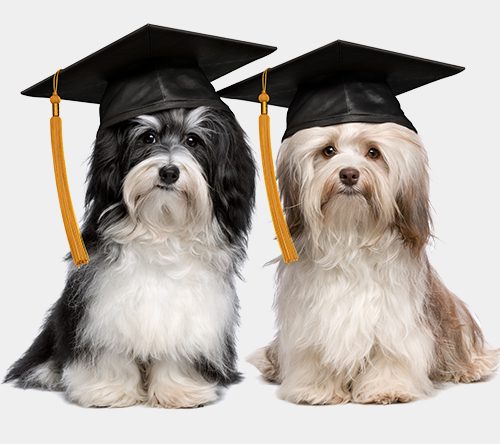Juvenile dog stages generally can range from 24 -78 weeks (6-18months). However this development period can be dependent on the type of breed. Large and giant dog breeds commonly do not mature into adulthood until 2-3 or even 4 years or age. Small dogs are the quickest to mature and to reach adulthood.
The JUVENILE (or ADOLESCENT) stage of your dog’s growth development can be a challenging time and it is important to establish yourself as a trustworthy leader and companion. During the BEYOND Dog Training Classes we will address all the important aspects of this stage of learning development including:
- Fortifying the basics learnt in Puppy Class and introducing the 3Ds –
– DURATION
– DISTANCE
– DISTRACTION
- Introducing you to the basic concepts and cues if you are new to training.
- Understanding your obligations as Responsible Pet Owners under the Animal Welfare Act.
- Behavioural traits of both Juvenile and Adult age groups.
- Tips for socialising your Juvenile dog.
- Management tips for leaving your Juvenile dog on it’s own.
- Crate management training (it is never used for punishment!).
- Difficult/destructive behaviours that may still be an issue or are newly acquired –
- Mouthing and biting
- Jumping up
- Barking and digging
- Chewing
- Fears & anxieties e.g. separation anxiety; noise phobias; aggression; resource guarding; etc
- Excitability and how to achieve calm behaviours
- Basic health care & nutrition
- Handling, grooming, massage and desensitisation
- Class handouts and training resources.
- Achievement Certificate.
Obedience using Positive Reinforcement Training:
- Fortifying the Basics learnt in Puppy Class or introducing you to those basic concepts of –
– Sit;
– Down;
– Stay;
– Come when called (Recall);
– Loose lead walking or walking at the HEEL position.
- More advanced obedience for those who are ready.
These group classes also cater for ADULT dogs who sometimes need to have the basics fortified too or to learn new cues and behaviours.
Juveniles tend to be less likely to seek the safety of their owners like they did as puppies. They are now more likely to takes risks because they have become very curious and less afraid of the world around them. As a result they will most likely get themselves into all sorts of trouble and it is this age group, more so than any other age group, which ends up being surrendered to Welfare organisations or in the dog pound as a result.
You will learn more about the typical behaviours of this age group in class as we progress further with learning POSITIVE REINFORCEMENT training techniques. You will also learn techniques to increase the likelihood of success with this sometimes difficult age group.
Once again SOCIALISATION is an important aspect of development of the Juvenile age group. Supervised and controlled class settings provide the opportunities for these dogs to learn social manners and to overcome any fears that developed during puppyhood. Sometimes it can also be beneficial to have a mix of juvenile and adult dogs in a class together because the juveniles can pick up on the more settled behaviours of the adults which has a calming influence on them.
*During the Juvenile/Adolescent stage, your puppy’s bone and joint development is still taking place, so you should avoid doing some aspects of activities such as Agility and rigorous hiking. It is particularly important to supervise your juvenile dog to prevent them from jumping from heights – including jumping out of cars or jumping down from utility trays.

